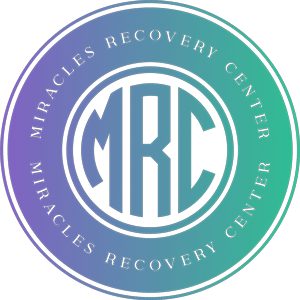Understanding IOP treatment plans
IOP treatment plans, also known as Intensive Outpatient Programs, provide a structured approach to addiction recovery that offers more flexibility than traditional inpatient programs. Here are some key points to understand about IOP treatment plans:
- IOP treatment plans are designed for individuals who require a higher level of care than standard outpatient treatment but do not need 24-hour supervision.
- They involve a combination of therapy sessions, group counseling, and educational workshops to help individuals achieve and maintain sobriety.
- Customized IOP treatment plans are tailored to each individual’s specific needs and circumstances, increasing the likelihood of successful long-term recovery.

Importance of customization in treatment
Customizing an individualized treatment plan for addiction recovery is essential for long-term success. Personalized approaches take into account each person’s unique needs and circumstances. Research shows that tailored treatment plans are more effective in achieving lasting sobriety compared to standard one-size-fits-all programs. Customized treatment plans address the specific challenges and triggers that individuals face, leading to better outcomes in their journey towards recovery.
Benefits of a personalized IOP treatment plan
A personalized Intensive Outpatient Program (IOP) treatment plan can greatly increase your chances of achieving long-term sobriety. Here’s why:
- A customized plan means the treatment is tailored to your specific needs and challenges, increasing its effectiveness.
- You receive individualized care and attention, ensuring your progress is closely monitored and adjustments can be made as needed.
- Personalized plans often include a variety of therapies and techniques that best suit your situation, maximizing the chances of successful recovery.
Building a long-term sobriety foundation
Creating a personalized treatment plan can help set a strong foundation for long-term sobriety. In such a plan, individual needs and circumstances are taken into account to tailor the treatment to best suit the person seeking help. This personalized approach can address specific challenges, triggers, and goals more effectively, increasing the likelihood of achieving and maintaining sobriety in the long run.
Tailoring treatment to individual needs
Tailoring treatment to individual needs is essential for achieving long-term sobriety. A customized IOP treatment plan considers your unique circumstances and challenges, providing personalized care that addresses your specific needs. This approach increases the chances of successful recovery by offering interventions and support that are most effective for you. By tailoring treatment to individual needs, you can receive the right level of care, therapy, and guidance to help you maintain sobriety in the long run.
Holistic approach to recovery
Many treatment programs now embrace a holistic approach, recognizing the importance of treating the whole person, not just the addiction. A holistic approach to recovery considers the individual’s physical, emotional, and spiritual well-being. This means incorporating therapies like yoga, meditation, nutritional counseling, and exercise into the treatment plan. These methods aim to promote overall wellness and help individuals develop healthy habits that support long-term sobriety.
Addressing co-occurring disorders
Often, individuals struggling with addiction also face other mental health issues. This combination is known as co-occurring disorders. Treating both addiction and mental health disorders simultaneously increases the chances of long-term recovery. Addressing co-occurring disorders is crucial in creating a tailored treatment plan that targets all aspects of an individual’s well-being. By addressing both conditions together, individuals can achieve sustainable sobriety and improve their overall quality of life.
Incorporating behavioral therapies
Behavioral therapies play a crucial role in helping individuals maintain long-term sobriety. They aim to modify harmful behaviors and develop healthier habits. The customized IOP treatment plan integrates various behavioral therapies to address the underlying causes of addiction and equip individuals with coping strategies. By incorporating behavioral therapies, individuals can learn to manage triggers, improve communication skills, and build a support network, enhancing their chances of achieving lasting sobriety.
Lifestyle modifications for sustained sobriety
Lifestyle changes and modifications play a crucial role in maintaining long-term sobriety. Some key aspects to consider include:
- Developing a routine that supports sobriety, such as setting regular sleep and meal times.
- Engaging in activities that promote physical and mental well-being, like exercise and meditation.
- Building a strong support system with friends and family who understand and encourage your journey.
- Avoiding triggers that may lead to relapse, such as certain environments or people.
- Seeking professional help and therapy to address underlying issues and learn healthy coping mechanisms.
Success stories and testimonials
Success stories and testimonials are powerful tools that showcase individuals’ achievements in their journey towards long-term sobriety. These narratives offer hope, inspiration, and motivation to those seeking recovery. Reading about real-life experiences can provide reassurance that recovery is possible and that others have overcome similar challenges. Testimonials often highlight the effectiveness of a personalized intensive outpatient treatment plan in supporting individuals on their path to sobriety. Hearing about the positive outcomes of others can instill confidence and belief in the process, encouraging individuals to stay committed to their own recovery journey.




